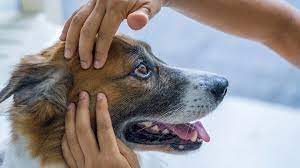
A concerning development has emerged in the UK as Brucella canis, an incurable disease previously limited to dogs, has now infected humans. This bacterial infection, which can lead to infertility, mobility issues, and discomfort in affected dogs, poses a serious threat to human health and can be transmitted through contact with infected bodily fluids.
The issue first came to public attention in the summer of 2020 when reports of dogs contracting Brucella canis began to rise in the UK. In response, the British Veterinary Association and Public Health England have been actively assessing the situation and providing guidance to veterinary professionals and organizations involved in the importation of dogs from regions where Brucella canis is prevalent.
What Is Brucella Canis?
Brucella canis is an infectious disease caused by the bacterium Brucella canis (B. canis). While it primarily affects dogs, it is increasingly becoming a concern for human health in the UK. This bacterial infection is highly contagious and can be transmitted to humans through direct contact with infected dogs or their reproductive and blood products.
Symptoms of Brucella Canis in Humans
The symptoms of Brucella canis infection in humans can be mild and nonspecific, making diagnosis challenging. Common signs include intermittent or irregular fever, loss of appetite, weight loss, sweating, headaches, fatigue, and back or joint pain. In some cases, the illness can lead to long-lasting symptoms, including recurrent fevers and persistent fatigue.
How Is Brucella Canis Transmitted to Humans?
Transmission of Brucella canis to humans primarily occurs through direct contact or aerosol exposure to infected animal fluids. Ingesting the bacteria or contamination of mucous membranes and breaks in the skin can also lead to infection. Notably, one common way people contract the disease is by consuming unpasteurized, contaminated milk or cheese.
Diagnosis and Treatment
Diagnosing brucellosis typically involves a blood test, and the infection can be treated with a course of antibiotics lasting at least six weeks. Although the treatment period is lengthy, patients can make a full recovery, and the infection is unlikely to return.
Prevention of Brucella Canis
Preventing brucellosis is crucial since there is currently no vaccine available. To minimize the risk of infection, individuals should avoid direct contact with bodily fluids (such as urine, feces, vomit, saliva, blood, wound drainage, and reproductive fluids) from infected dogs. Those handling animals, especially internal organs, should wear rubber gloves to reduce the risk of transmission.
As the situation regarding Brucella canis in the UK unfolds, public health authorities and veterinary experts continue to work together to monitor, assess, and address this emerging health concern.